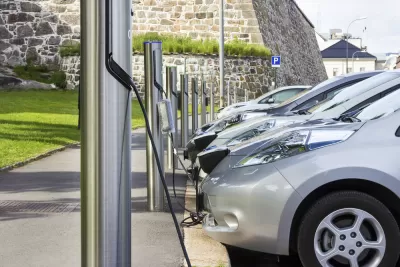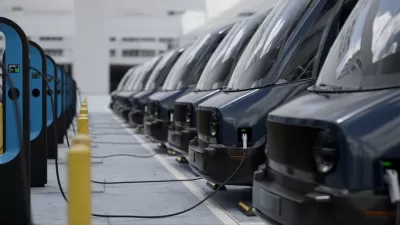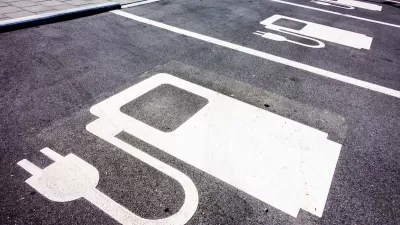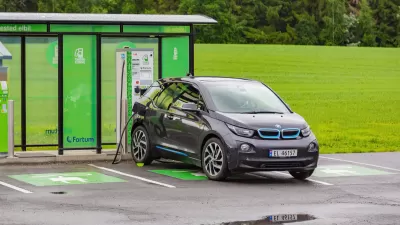Laws designed to protect car dealers against price competition from car manufacturers are, in many states, preventing electric car makers from selling directly to consumers.

In a piece in The Atlantic, Robinson Meyer calls out antitrust laws that protect U.S. car dealers from competition for preventing the more widespread adoption of electric vehicles. According to Meyer, more than half of U.S. states have laws that prevent automakers from selling directly to consumers—laws that Meyer calls "a major impediment to decarbonizing the American economy."
In 17 states, including Texas, Wisconsin, and Connecticut, laws forbid any automaker from opening a store and selling its vehicles directly to customers. Another 11 states, including New York, New Jersey, and Georgia, allow only one automaker, Tesla, to open stores and sell directly to state residents. If you want to buy a Ford truck, you have to go to a Ford dealership owned by a third-party company.
Meyer writes that restrictions on direct-to-consumer sales are crippling EV sales, pointing to the difference between New York, where the state offers plenty of incentives for buying EVs, with Florida, which does not offer the same benefits but, because of its more permissive dealership laws, saw twice as many electric car sales as New York in 2019 and 2020. Meanwhile, many traditional car dealerships are unprepared to sell EVs, lacking charging infrastructure or knowledgeable staff that can answer buyers' questions.
Now, three major electric car manufacturers have teamed up to wage the legal battles necessary to change these laws. Meanwhile, legacy carmakers are introducing more electric models, which dealerships will have to equip themselves to sell.
FULL STORY: The Simplest Way to Sell More Electric Cars in America

Maui's Vacation Rental Debate Turns Ugly
Verbal attacks, misinformation campaigns and fistfights plague a high-stakes debate to convert thousands of vacation rentals into long-term housing.

Planetizen Federal Action Tracker
A weekly monitor of how Trump’s orders and actions are impacting planners and planning in America.

In Urban Planning, AI Prompting Could be the New Design Thinking
Creativity has long been key to great urban design. What if we see AI as our new creative partner?

King County Supportive Housing Program Offers Hope for Unhoused Residents
The county is taking a ‘Housing First’ approach that prioritizes getting people into housing, then offering wraparound supportive services.

Researchers Use AI to Get Clearer Picture of US Housing
Analysts are using artificial intelligence to supercharge their research by allowing them to comb through data faster. Though these AI tools can be error prone, they save time and housing researchers are optimistic about the future.

Making Shared Micromobility More Inclusive
Cities and shared mobility system operators can do more to include people with disabilities in planning and operations, per a new report.
Urban Design for Planners 1: Software Tools
This six-course series explores essential urban design concepts using open source software and equips planners with the tools they need to participate fully in the urban design process.
Planning for Universal Design
Learn the tools for implementing Universal Design in planning regulations.
planning NEXT
Appalachian Highlands Housing Partners
Mpact (founded as Rail~Volution)
City of Camden Redevelopment Agency
City of Astoria
City of Portland
City of Laramie





























